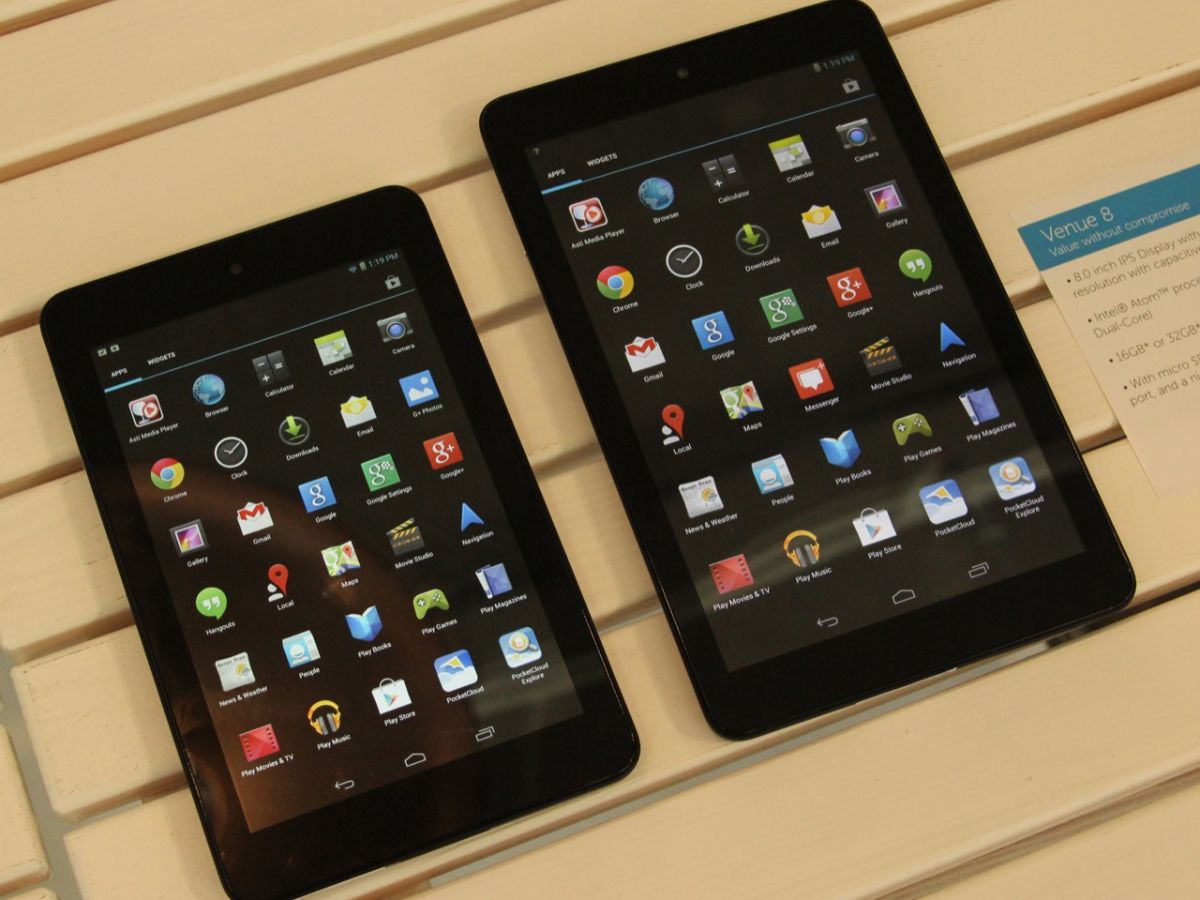
Introduction to Android and Windows Tablets
Android Tablets
Android tablets are known for sleek designs, affordability, and an extensive app ecosystem. They are often preferred by users prioritizing entertainment and casual usage. Generally lighter and thinner than Windows counterparts, they offer more portability and convenience for everyday use.
Dell, a leading tech manufacturer, has ventured into the Android tablet market with offerings like the Dell Venue series. These devices aim to provide a seamless user experience with the Android operating system. Equipped with powerful processors, ample storage options, and high-resolution displays, they suit both entertainment and productivity needs.
Windows Tablets
Windows tablets offer a more professional and versatile experience. Preferred by users needing higher processing power and integration with other Windows-based systems, they are ideal for businesses and enterprises. These tablets easily integrate with existing Windows software and hardware.
Microsoft's Surface Pro series exemplifies high-end Windows tablets, offering impressive performance, battery life, and design. With detachable keyboards and stylus support, they function similarly to laptops. The Surface Pro series is widely regarded as one of the best Windows tablets available.
Key Features Comparison
Display and Design
Android Tablets:
- Often feature larger screens with higher resolutions, ideal for multimedia consumption.
- Dell Venue series offers a range of display sizes and resolutions.
- Known for sleek designs, slim profiles, and lightweight bodies.
Windows Tablets:
- Designed with a focus on productivity, often featuring 3:2 aspect ratio screens.
- Surface Pro series is renowned for sleek design and robust build quality.
- Better viewing experience for documents and presentations.
Performance
Android Tablets:
- Powered by processors from Qualcomm and MediaTek, offering good performance for everyday tasks.
- May struggle with demanding tasks like video editing or software development.
Windows Tablets:
- Generally more powerful due to x86 processors, handling demanding tasks with ease.
- Surface Pro series equipped with Intel Core processors, providing impressive performance and battery life.
Storage and Connectivity
Android Tablets:
- Often come with expandable storage options like microSD cards.
- Feature multiple USB ports and connectivity options like Wi-Fi and Bluetooth.
- Dell Venue series includes USB-C ports for fast data transfer and charging.
Windows Tablets:
- Typically offer user-upgradable storage options.
- Feature multiple USB ports, including USB-C with Thunderbolt 4 support.
- Surface Pro series includes two Thunderbolt 4 ports for fast data transfer and charging.
Battery Life
Android Tablets:
- Generally have better battery life due to power-efficient design.
- Dell Venue series offers battery life that can last a full day with moderate usage.
Windows Tablets:
- Improved battery life over the years but still shorter compared to Android tablets.
- Surface Pro series offers battery life lasting around 8-10 hours with moderate usage.
User Experience
Android Tablets
Android tablets are known for an intuitive user interface and extensive app ecosystem. The Google Play Store offers a wide variety of apps, including popular titles like Netflix, Hulu, and social media platforms. Customization options like widgets and launchers allow users to personalize home screens.
Dell's Android tablets, such as the Venue series, provide a seamless user experience with the latest version of Android. Features like split-screen mode and gesture navigation make multitasking and navigation easy.
Windows Tablets
Windows tablets offer a more professional and versatile user experience. The Windows operating system integrates seamlessly with other Windows-based systems and software, making it a great choice for businesses and enterprises. Support for styluses and Bluetooth mice allows users to work more efficiently.
The Surface Pro series is renowned for its inking-friendly interface, ideal for note-taking and drawing. The device also supports the Microsoft Office suite, enabling users to work on documents, presentations, and spreadsheets directly on the tablet.
Comparison of Specific Devices
Dell Venue Series (Android)
The Dell Venue series is a range of Android tablets designed for a premium user experience. These devices come with high-resolution displays, powerful processors, and ample storage options. Known for sleek design and lightweight build, they are easy to carry around.
Standout features include an optional stylus accessory. Although the first-generation stylus had issues, Dell redesigned it for a more accurate and responsive experience. The Venue series includes a single USB port, which can be a drawback for those seeking to connect peripherals while charging.
Microsoft Surface Pro Series (Windows)
The Microsoft Surface Pro series is a range of high-end Windows tablets offering impressive performance and versatility. These devices come with detachable keyboards and stylus support, making them functionally similar to laptops. Featuring 3:2 aspect ratio screens, they are inking-friendly and provide a better viewing experience for documents and presentations.
Key advantages include the ability to run demanding tasks with ease. Equipped with Intel Core processors, they provide impressive performance and battery life. The device also includes two Thunderbolt 4 ports for fast data transfer and charging.
Making the Right Choice
Choosing between Dell's Android tablet and Windows tablets depends on specific needs and preferences. Android tablets are ideal for those prioritizing entertainment and casual usage, offering sleek designs, extensive app ecosystems, and better battery life.
Windows tablets cater to professionals and businesses, offering more powerful processors, user-upgradable storage options, and seamless integration with other Windows-based systems and software. The Surface Pro series from Microsoft exemplifies high-end Windows tablets with impressive performance and versatility.
For demanding tasks like video editing or software development, Windows tablets are the better choice. However, for casual users prioritizing entertainment and portability, Android tablets like the Dell Venue series are more suitable.
Understanding the key features and differences between these two operating systems helps users make an informed decision that best suits their needs.
